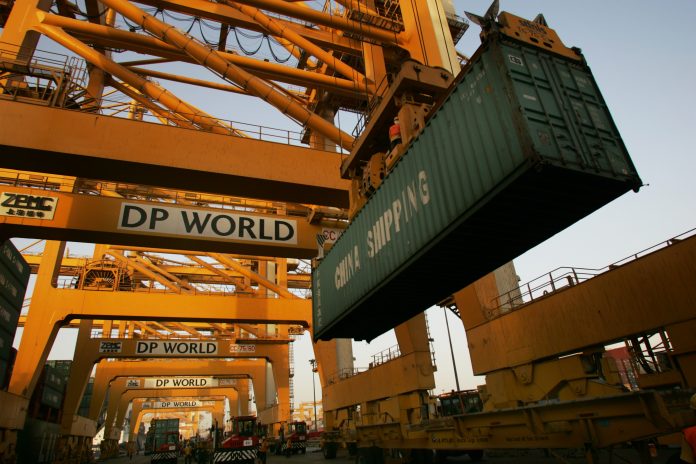China’s massive re-imagining of ancient Silk Road trade routes is seen as a business opportunity that could help ameliorate the effects of slowing global economic growth.
“The Chinese horizon is changing,” chief executive of DP World and one of Dubai’s most senior officials, Sultan Ahmed bin Sulayem said.
According to Financial Times, when China held its One Belt, One Road summit in Beijing earlier this month it used the event as an opportunity not only to announce lavish new financing plans, but also to allay regional countries concerns that the global trade strategy would benefit China at their expense. But there were business magnets whom such misgivings have not troubled. DP World has, for example, just seen off the first direct freight train from the UK to China.
The train left in April on its three-week journey from DP World’s London Gateway, at the mouth of river Thames, to Yiwu in eastern China, laden with British products ranging from whisky to pharmaceuticals. DP World aims to co-ordinate its global network with China’s projected $900b investment for the One Belt, One Road project. “We will work with the Chinese to prepare our ports to be ready,” Ahmed bin Sulayem said.”They need to build thousands of kilometres of rail network to make it work.”
Wage costs in China are spiralling by 20 per cent a year, says DP World, which has four joint ventures in the country. Such cost rises are pushing Beijing to locate export-oriented manufacturing in cheaper locations at home, such as Urumqi in north-west China, and further afield in Myanmar, Indonesia and Cambodia. “These areas are mushrooming and will produce for Europe and the west,” bin Sulayem said. One Belt, One Road’s maritime routes link China to Southeast Asia, India, and via the Maldives, to Africa and on to Europe through the Red Sea. Land connections include the main trans-Eurasian route via Kazakhstan. Other rail networks link China to Iran and the Gulf, as well as to Pakistan by way of Afghanistan.
The rail routes are expected to compete with air cargo, with the sea routes used for lower-value bulk trade. “We are on all those routes,” Sultan Ahmed bin Sulayem said.
DP World has about 20 terminals poised to take advantage of One Belt, One Road. These include six in South Asia and four in China, as well as others operating in Thailand, Vietnam, South Korea and Indonesia.
DP World’s container terminals handled 64m 20-foot equivalent units (TEU) last year, compared with capacity of 85m TEU. It hopes to expand capacity to 100m TEU by 2020, dependent on market demand. With plans to expand in Latin America, Russia and Africa, DP World’s focus on international markets is helping to mitigate a slowdown in its domestic activity. Currency fluctuations, weaker world economic growth and the fall in crude oil prices have combined to make business conditions more difficult.
Volumes at its Jebel Ali deep port, the largest marine terminal in the Middle East, fell by about 5 per cent in 2016, as Gulf governments’ spending cuts bit into regional trade. DP World says it expects this year’s volumes at the port to be stable. Among its overseas projects, DP World is advising on the Khorgos Eastern Gate terminal near the Chinese border with Kazakhstan, an important point on rail routes linking China to Europe. Trains have to stop there where the former Soviet Union meets China as the rail gauge changes. “We will work with the Chinese to make our ports ready,” Sultan Ahmed bin Sulayem said.
In a similar way to how the Jebel Ali Free Zone trade area helped transform Dubai into an entry point for global trade, he remarked. DP World hopes that the Khorgos agreement will build a “new Dubai” at China’s border with Kazakhstan.
“There are risks to Jebel Ali’s growth should the developments at Gwadar in Pakistan lead to that port becoming a trans-shipment hub,” head of macro strategy research at Cairo-based investment bank EFG Hermes, Simon Kitchen said.
Jebel Ali port and Jebel Ali Free Zone, DP World’s prime assets, have systems and infrastructure that have made them a success, Kitchen said. But Gwadar, being outside the Gulf, “is in a very good location, and if Pakistan can get the incentives right, it should thrive,” he added.




